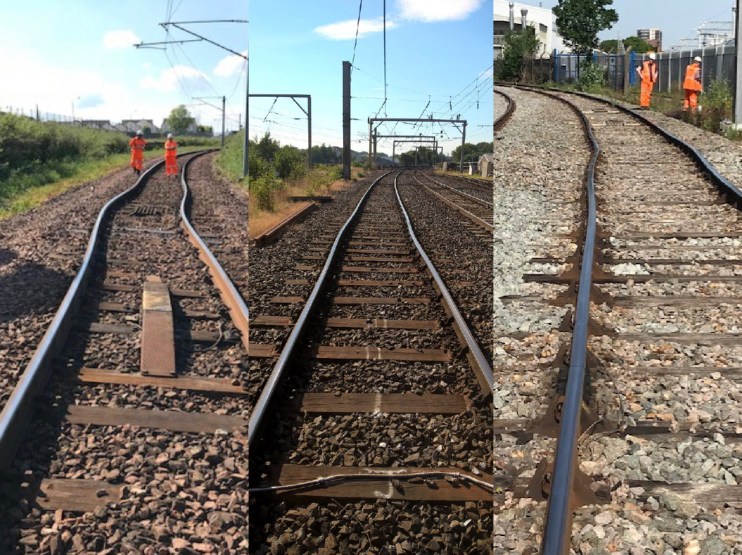Heatwave travel disruption: Train speed limits amid track buckling and increase in car breakdowns

Network Rail has announced it will set a speed limit on trains amid the possibility of tracks buckling due to soaring soaring temperatures.
The government-owned train operator explained that steel tracks are usually 20 degrees hotter compared with atmospheric temperatures.
When air temperatures reach 30 degrees tracks could go up to 50 degrees, causing them to expand and buckle – especially when trains travel over them.
A Network Rail spokesperson said: “This helps because slower trains exert less force on the track and reduce the likelihood of buckling, avoiding the major disruption caused by a buckled rail.
“However, where speed restrictions are in place, journeys can take longer than normal, so we advise passengers to plan ahead and carry a bottle of water with them.”
The operator’s decision came as train tracks near Battersea burst into flames in the early hours of Monday, City A.M. reported.
As firefighters ran to the scene, Network Rail closed all lines passing through the affected area, restoring services by 9am.
Drivers
The railway network is not the only one affected by the heatwave as motoring association the RAC reported on Monday a 10 per cent increase in car breakdowns.
According to group, if temperatures reach 40 degrees people will need to question “their decision to drive in the first place.”
Motoring group the AA added that “heatwaves aggravate the type of breakdown we normally see at this time of the year: over-heating engines, tyre punctures and blow-outs and people panicking after locking children and pets in the car.”
“We are at least not quite in the summer holiday season and so the level of breakdowns is not as bad as it could be. However, having to wait outside the car in these temperatures and sun can be unpleasant, particularly if there are small children involved and the car isn’t carrying water, sun cream, etc.”.
“Perhaps unsurprisingly, a very common cause of vehicle breakdowns in hot weather is vehicle cooling system faults, where cooling fan issues that have gone undetected in cooler weather, finally show their hand. If a car is driven whilst overheating, it can result in major engine damage where repair bills can enter four figures.
“With traffic likely to be heavier than usual as people head off to the coast, it’s important to have your car checked prior to setting off.”